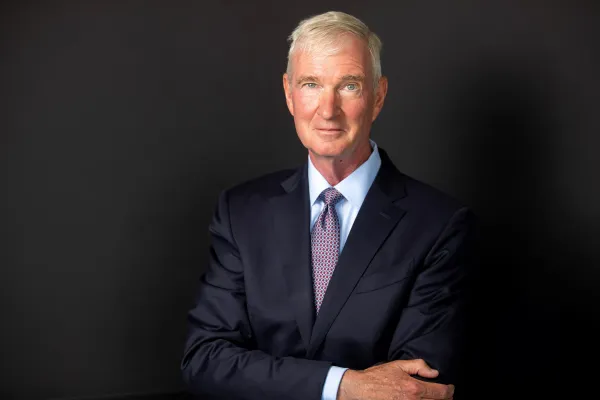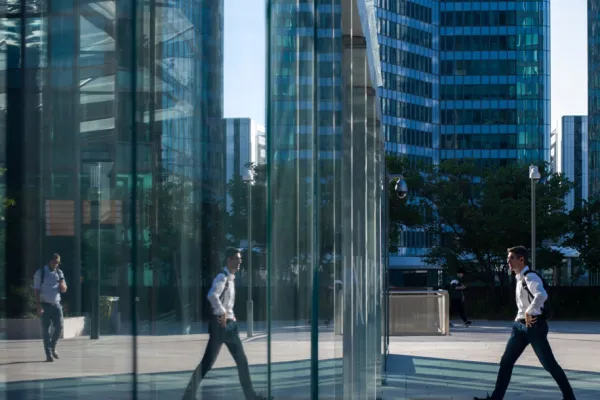As nations across the world grapple with disparities their populations face in terms of access to opportunities for higher education, livable working wages, and socio-economic mobility, advancing the liberty and empowerment of women in Saudi Arabia has been an area of increasing global interest. Within the country, initiatives have been underway to hasten progress toward this important goal. National government programs have formally recognized that the full engagement of women is vital for Saudi Arabia to achieve its true cultural vibrancy, flourish economically, and confront evolving challenges in a rapidly changing world. The most prominent of these national programs is Saudi Vision 2030. Enacted in 2016, the Vision includes a multitude of efforts to improve quality of life, increase government effectiveness, and diversify the Saudi economy – and empowering women to join the workforce is a key stated objective.
Given the vast scope of the transformative Vision 2030 program and its potential impact on global financial markets, most institutional investors know some glancing basics about the initiative. But far fewer know the progress that Saudi Arabia has already made in elevating women into roles of power in financial services.
Sarah Al-Suhaimi is the most visible pioneer and represents that progress. In 2017, she became the first woman elected as chairperson in the history of the Saudi stock exchange. Leading the Board of Directors of Saudi Tadawul Group, the recently transformed holding company and parent of the Saudi Exchange, the largest exchange in the Middle East with a nearly $2.5 trillion market capitalization, has made Al-Suhaimi a role model for female empowerment in the Middle East and beyond. But she was a trailblazer long before that, as one of the very few Saudi women rapidly cutting an upward career path in the Saudi investment arena in the early 2000s. She achieved a key breakthrough in 2014 as the first woman to lead a Saudi investment bank when she took over as CEO of SNB Capital (formerly NCB Capital), the largest asset manager in the Middle East.
II recently spoke with Al-Suhaimi about her journey and the importance the rise of women in finance and other industries holds for Saudi Arabia’s business community – and the nation’s future as a global power.
Q: As someone with deep experience in the Saudi financial arena, what are some misperceptions about the role women play in the investment world in Saudi Arabia? Or even in the investment world at large?
Women in finance, in general, have had a tough journey. I speak to a lot of CEOs and executives in the West, and we all face the same issues. It doesn’t matter if you’re in Riyadh or London or New York; issues that women face are very, very similar. We need more women in finance across all regions – and the good news is we are starting to see progress.Some people have a misconception about what they perceive as a lack of empowerment of Saudi women in financial services. Saudi women have been empowered to reach high places, and I think the world did not fully understand this until recently. I often point out that women in financial services in Saudi Arabia have risen through the ranks – to executive leadership levels or even on the boards of companies – much faster than what has been achieved in many other places around the world.
Consider my own journey, which began 20 years ago. I can safely say I was one of the first Saudi women to work in the investment sector, and I went on to become the chairperson of the stock exchange, then later the newly transformed holding company, Saudi Tadawul Group. Before that, I spent seven years as the CEO of the largest investment bank in the Middle East. I also serve on the board of four companies. To put that in perspective, just a few years ago, we did not have a single woman on boards of listed companies. And it’s not just me – it has become increasingly common for women to be elevated to the CEO level or serve on boards of publicly listed companies in Saudi Arabia.
Of course, there is still a lot of work to be done and progress to be made. Every year, we see more women coming into the workforce in Saudi Arabia – especially after the launch of Vision 2030.

Q: Your career has brought you to a crucial leadership position at a time of significant transformation in Saudi Arabia. How have your life and career prepared you for this moment?
I always say I’m 100% Saudi and 100% Saudi made. I was educated in Saudi Arabia and hold a bachelor’s degree in accounting. After graduating in 2002, I spent five years at Saudi American Bank, which became Samba Financial Group, where I was a research analyst for Saudi public companies and a portfolio manager with a broader exposure to risk and compliance with the Assets Management Division. In 2007, I went to a newly established investment bank called Jadwa and rose through several positions to become the Chief Investment Officer. That broadened my experience with different asset classes, like private equity and real estate. In 2014, I became the CEO of SNB Capital (formerly NCB Capital), the largest asset manager in the Middle East. So, by the time I was elected as the chairperson of the Saudi Exchange (Tadawul) in February 2017, I had held a variety of different positions in the financial services sector that prepared me to take on that role.Q: Were there any other women who mentored you along the way?
Unfortunately, there were very few women who I could look up to as mentors during the initial years in my career. During my first four and a half years at Jadwa, I was the only woman at the company. However, by the time I joined SNB Capital in 2014, many more women had joined the Saudi workforce. That said, I do think I was the first woman to become CEO of a Saudi investment bank. Today, I am in a position to serve as a mentor to other women coming up in the Saudi workforce – and I am excited to take on that responsibility.Q: So you’re a pioneer, a trailblazer…
Let’s say I am grateful, and I have had the pleasure of opening some doors and breaking some glass ceilings.Q: You’re on the board of several companies. Could you talk about how businesses – and investors who invest in them – benefit from having more women involved in their leadership?
We have seen many examples of how an increase in the diversity of a company’s leadership can lead to better performance. There is a high correlation between gender diversity and good performance. Companies today are very aware of the need for gender diversity and the associated benefits. We see this manifested in the growing number of women that are serving on boards in our country today.As for investors, they realize that these efforts are an indication that a company is taking their demands seriously. Both investors and companies in Saudi Arabia know that they have to demonstrate gender diversity to attract a suitable shareholder mix, which includes foreign investors.
Finally, we all know that the world is becoming increasingly focused on ESG – and gender diversity is a core component of ESG, which companies here in the Kingdom are taking very seriously.

Q: You mentioned the Saudi Vision 2030 program. How is it helping to increase opportunities for women?
The KPIs that Vision 2030 has set have enabled many Saudi women to join the workforce. Let’s start with government agencies. A decade ago, I could go to a government agency and there wouldn’t be one woman in the whole building. Today, if you walk into any government agency in Saudi Arabia, you will see many women working there.Second, today many business owners in Saudi Arabia are women. The government has launched several initiatives to enable SMEs to grow in Saudi Arabia. Many of these SMEs are owned by women, so this has been a real boost for all of them.
Third, the increase in doing business through digital channels is enabling more women to work from their homes. This is important, as one of the most common reasons a woman leaves her job is because she is starting a family. This holds true for women in many countries around the world.
And then there’s the new Ministry of Culture that was established a few years ago that has created varied opportunities for young professionals in fields such as fashion, culinary arts, and visual arts, just to name a few. This is something that didn’t exist for men or women previously.
All in all, the professional and social ecosystems are developing rapidly in Saudi Arabia. Empowering women to get into the workforce has unlocked the potential of a significant part of Saudi society that did not have as much opportunity before. We all can collectively benefit from this change and untapped potential.
Q: You’re a role model to many women. What advice would you give to young women today about how to improve their career trajectories?
I think women need to look at themselves with a little bit more confidence. They need to believe in their skills and trust themselves more. And most importantly, they need to encourage and support other women.Q: If you look ahead five years, what’s your vision for Saudi Tadawul Group and what role will women have played in that success?
Saudi Tadawul Group is among the top 10 largest markets in the world today, and by 2030, I hope we will be able to move to the top five. Saudi Tadawul Group takes pride in its gender equality initiatives. Over the years, we have enjoyed watching many women we hired move through our ranks – some to our executive management team and board. I look forward to continuing our progress in this area. Importantly, we hope to be a role model for our listed companies, in this regard.Learn more about the Saudi Exchange and the Saudi Tadawul Group.






